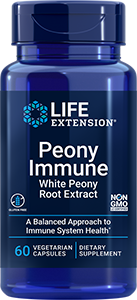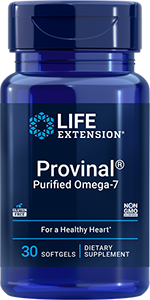Boswellia improves lipids, liver enzymes and long term glucose control in diabetics
Tuesday, February 18, 2014. The results of a trial reported in an article published on February 4, 2014 in the Journal of Diabetes & Metabolic Disorders reveal a benefit for supplementation with Boswellia serrata among men and women with type 2 diabetes.
"This study was aimed to investigate the antidiabetic, hypolipidemic and hepatoprotective effects of supplementation of Boswellia serrata in type 2 diabetic patients," write Akram Ahangarpour and colleagues. They enrolled 60 type 2 diabetics between 30 and 48 years of age who were divided to receive three 300 milligram (mg) doses of Boswellia serrata daily or no supplementation for six weeks. Blood samples collected before and after the treatment period were analyzed for lipids, triglycerides, liver enzymes, and fructosamine, which assesses long term glucose control. Participants were questioned weekly concerning whether they experienced side effects or drug interactions.
At the end of six weeks, subjects who received Boswellia had a significant increase in high-density lipoprotein (HDL) levels in addition to reductions in total and low-density lipoprotein (LDL) cholesterol, fructosamine and the liver enzymes SGPT and SGOT. No side effects or drug interactions were reported. The authors suggest that Boswellia's antioxidant effect and its ability to lower blood glucose could be responsible for the subjects' reduction in fructosamine, which is a measurement of glycosylated proteins.
The current findings are in agreement with those of other studies which have observed improvements in lipids and liver enzymes in association with Boswellia serrata supplementation. "Daily consumption of 900 mg of Boswellia serrata possibly depicts a safe and effective means to decrease the risk factors associated with type 2 diabetic subjects," the authors conclude.
|
 |
What's Hot
The July 2013 issue of the Journal of Complementary and Integrative Medicine reports the finding of researchers at Baylor University of a reduction in a marker of inflammation among chronic kidney disease patients given a combination of Curcuma longa (curcumin) and Boswellia serrata.
The study included sixteen individuals receiving standard care for chronic kidney disease who were not undergoing dialysis. Participants were randomized to receive capsules containing curcumin from turmeric extract plus Boswellia serrata, or a placebo for eight weeks. Blood samples collected before and after treatment were analyzed for plasma interleukin-6 (IL-6), tumor-necrosis-factor-alpha (markers of inflammation), and the endogenous antioxidant enzyme glutathione peroxidase, as well as serum C-reactive protein (CRP, another marker of inflammation.)
Participants' blood test results at the beginning of the study revealed increased inflammation and reduced glutathione peroxide levels. At the study's conclusion, those who received curcumin and Boswellia serrata experienced a reduction in interleukin-6 in comparison with pretreatment values, indicating decreased inflammation, while IL-6 values rose among those who received a placebo.
In their discussion of the findings, the authors remark that curcumin and Boswellia serrata have been separately shown to lower interleukin-6 via inhibition of the nuclear factor kappa B and mitogen activated protein kinase (MAPK) signaling pathways. Although tumor-necrosis factor-alpha was not reduced in the current study, they observe that the ACE inhibiting drugs used by the majority of the patients, which are known to lower tumor-necrosis factor-alpha, could have influenced the results.
"Our findings partially support previous research on the anti-inflammatory effects of curcumin and Boswellia serrata," Jennifer J. Moreillon and colleagues write. "Larger randomized trials are needed to further investigate the role of anti-inflammatory supplements in moderate chronic kidney disease. Particularly, it is of great importance to determine how these compounds decrease inflammation and thus, cardiovascular mortality." |
 |
Latest Products |
 |
|
Extracts from the white peony root have been used in China for immune balance for more than 1,200 years. Modern science now recognizes the immune importance of a bioactive peony extract component called paeoniflorin.
Peony Immune White Peony Root Extract is a standardized extract of active white peony compounds that have been shown to help maintain the balanced responsiveness, sensitivity, and strength of a properly-modulated immune response. Through a host of subtle mechanisms, Peony Immune White Peony Root Extract promotes immune homeostasis—optimal immune health—by limiting production of inflammatory molecules and naturally balancing inflammation-suppressing cells and pro-inflammatory cells.
A host of human clinical trials have demonstrated that the compounds in Peony Immune White Peony Root Extract promote a healthy and balanced inflammatory response. |
| |
 |
|
Provinal® contains purified palmitoleic acid, an omega-7 monounsaturated fatty acid (MUFA). Palmitoleic acid is formed in the body from the conversion of glucose to fatty acids, or can be obtained in the diet from plant and marine sources. This fatty acid has been shown to support healthy cholesterol and C-reactive protein levels for those already within a normal range, and has a beneficial effect on other metabolic parameters.
Palmitoleic acid acts as a direct regulator of metabolism, with actions including:
- suppression of adipocyte cytokine expression
- promotion of pancreatic B cell proliferation and secretory function to support insulin production and glucose management
- enhancement of skeletal muscle glucose uptake
- stimulation of adipocyte peroxisome proliferator–activated receptor (PPAR)-gamma transcriptional activity, a nuclear receptor involved in fatty acid metabolism as well as modulation of cell proliferation and differentiation
Provinal® is a registered trademark of Tersus Pharmaceuticals, LLC
|
|
 |
Related Articles
|
|

